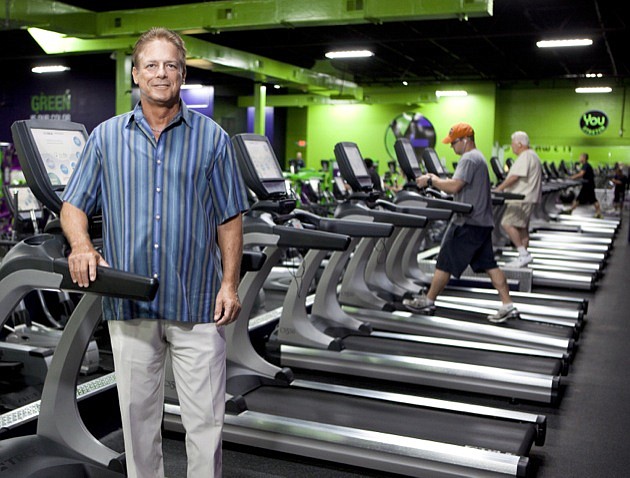- November 24, 2024
-
-
Loading

Loading

Retail landlords used to scoff at the likes of health club entrepreneur Rick Berks.
In fact, many landlords banned gyms from shopping centers. The thinking was that clients took up too many parking spaces and besides, they didn't linger or shop after workouts.
But the recession, which left dozens of empty stores in Gulf Coast strip malls, shelved that theory. Landlords are now vigorously recruiting people in Berks' industry.
Berks, in turn, has used the renewed commercial real estate interest in fitness clubs to spur his business, Boca Raton-based Youfit Health Clubs, to some heavyweight growth. The company is like the Southwest Airlines of gyms: It applies a low-cost, high-volume business model, mixed in with quirky colors like purple and green, to find its place in a crowded industry.
That place is now rapid expansion statewide, with the Gulf Coast a key spot in the plans.
“We've rejuvenated quite a few centers that were dying,” says Berks. “Now we get calls all the time from landlords. That has fueled our growth more than anything.”
Berks cites a Sweetbay-anchored shopping center in St. Petersburg and a Publix center in Sarasota as two local, recent examples where YouFit came in and propped up a struggling center. Berks also says giant retail landlord Simon Property Group has wooed him to open more YouFits on the east coast of Florida. YouFit Health Clubs are usually between 15,000 square feet and 20,000 square feet.
YouFit isn't the only gym to see a spike in interest from strip malls and shopping centers. Commercial real estate data firm CoStar reports that health club leases are up nationwide in 2011 over 2010.
The growth track at YouFit is both in stores and revenues. On the latter, Berks expects to reach $25 million in 2011 sales, up from roughly $15 million in 2010. The company has opened 31 YouFits since Berks launched the first one in St. Petersburg in April 2008. It also recently expanded to Phoenix.
YouFit has opened 11 gyms in 2011, and Berks plans to open four more this year and at least 20 in 2012. New locations include a second one in Brandon. Says Berks: “We've had great success everywhere we've gone.”
It helps that past commercial real estate, YouFit is the antitheses of the traditional fitness club model. In the conventional strategy, a club seeks to build revenues per member with a smorgasbord of features, including pools, personal trainers and classes.
YouFit, though, offers low price points with few frills. There are no classes and no pools. The base membership price is $10 a month — a sizeable discount from some gyms that charge up to $50 a month.
Berks got into the fitness business through his first passion, law enforcement. He was with the Broward County Sherriff's Department in the late 1980s, when he decided to turn his exercise regimen into entrepreneurialism. He bought a Gold's Gym, and soon after that, he launched a new company, Planet Fitness. He recently sold his ownership stake in Planet Fitness.
Now he's focused on growing YouFit. The lurking threat, says Berks, is competitors that aim to copy the low-cost model. But Berks says low-cost gyms only work when multiple factors, from real estate to equipment, are in sync.
“It seems like it's a simple model to do,” Berks says. “It's not. It's tricky.”